Welcome to A Wild Green Heart. As always, it's a delight that you've come to visit. I hope you've made yourself a pleasant drink and perhaps a snack. A toffee is the perfect accompaniment for today's post, as you'll discover later.
I have what I hope might be a bit of a treat today. It's relatively short, but I hope it might provoke some deeper reflection after reading or listening. I'll describe it as a philosophical story-poem about metaphors, which takes place while being lost in the woods of mid-life.
The piece came to me as a story, but refused to be written down without being formed into structured verses as a poem. I don't know why this is, but feel free to ask it. I suspect your query might be met with a sassy counter-question, but why not give it a go, and let me know what it says?
So this story-poem came to me more or less fully formed after one of my rare but magical bath experiences. I had been listening to Martin Shaw and the poet Malcolm Guite discussing C. S. Lewis and his thoughts about paganism, animism, and Christianity. It's a fascinating conversation, and was definitely the genesis of the ideas in my poem. They discuss Lewis’s struggle to bring together his reason and his imagination - which he describes beautifully in a poem as his two inner goddesses. That's a struggle I can identify with, for sure, and a metaphor that rings true.
I'm categorising this post as part of my ongoing series of posts about the Imaginal Realm, because I think much of my poem, and much of what has formed my thinking around the purpose of poetry, literature and art, boils down to the nature of the human Imagination. I'm not going to go into that territory in-depth today, though I'm very aware that I'll be writing more future posts on the nature and necessity of Imagination. But I think it's worth highlighting one element of the conversation between Shaw and Guite.
C.S. Lewis, Guite says, was informed not only by his own lifelong love of mythology and the Classics, but also by the likes of his friend Owen Barfield, who in turn was greatly influenced by the writings of Samuel Taylor Coleridge. All of these men were convinced that the enlightenment view of the world as a mechanistic thing, rather than an alive being, was fundamentally flawed, and I hope you know by now that I would strongly agree with them.
Linking the ways of the Imagination with the aliveness of the world and the divine creation, Malcolm Guite goes on to quote Coleridge’s Biographia Literaria, specifically the first portion of this text:
The Imagination, then, I consider either as primary, or secondary. The primary Imagination I hold to be the living Power and prime Agent of all human Perception, and as a repetition in the finite mind of the eternal act of creation in the infinite I AM.
The secondary Imagination I consider as an echo of the former, co-existing with the conscious will, yet still as identical with the primary in the kind of its agency, and differing only in degree and in the mode of its operation. It dissolves, diffuses, dissipates in order to recreate; or where this process is rendered impossible yet still at all events it struggles to idealize and to unify.
I'd like to explore both Coleridge and Barfield’s works some more, as both names keep coming up lately in various things I'm reading and listening to on substack and in podcasts, and I realise I'm rather ignorant about both of them. Anyway, the point is that hearing all this talk about the role of the Imagination three years ago in the bath, seemed to provoke mine into action, and the story-poem below was the result of it. Thus it is both a product and an exploration of the Imagination.
I feel like it might make up part of a much longer piece of work one day. And as a favorite piece, I've been keeping it fairly close to my chest for the last three years, though I've read it to a few folk in person. But I'm questioning that impulse now. I keep telling myself I'll write a proper book one day. But what if that day never comes? And why reserve some work for a project that might not materialise? It doesn't seem a very fitting attitude to words that are given as a gift. I want to offer them out to the world as a gift as well. As Annie Dillard says in her book The Writing Life:
The impulse to keep to yourself what you have learned is not only shameful, it is destructive. Anything you do not give freely and abundantly becomes lost to you. You open your safe and find ashes.
These words are an increasingly strong clarion call and guiding light to me in all areas of life. And so, dear readers, here is another act of my Imagination, cast freely and abundantly onto the waters of this small substack community. There's precious little left in the vaults now that hasn't either been shared on here, or in zines (ones that are in the world or are currently in the works) that can be had freely or for just a few quid. I hope you enjoy it, and I would dearly love to hear your responses to it in the comments.
The Body Poetic I didn't walk into it, nevertheless, I'm here: a dense, primordial forest. An unknown place of unknown size, with unknown paths. As for the greater landscape: a mystery. Are there towns or cities on this landmass? If so, what languages are spoken there? There are many creatures here: the trees of course, the moss and lichen, the bounteous fungi and their hidden mycorrhiza, abundant insects and arachnids and so forth, birds of many sizes, small mammals such as squirrels, rabbits, even the occasional deer. But so far, no humans. And yet. Today I've stumbled on a trail of breadcrumbs scattered through the trees. What choice do I have but to follow this trace; to trust it was laid by hands that care. But if the crumbs were placed by one who will devour me, still, I will follow them and be devoured. Better that than to remain apart from humanity. Better to die than feel always alone. If I am devoured, at least I will become part of something; my most nutritious aspects will give sustenance and vigour to it, so my life - my death - will not be all in vain. The trail takes me in circles. The breadcrumbs lead through thickets of tangled brambles where no man could pass. They skirt the edge of clearings before retreating once again into shadowy depths of forest. I find small creatures eating them. Watching a flock of sparrows hop and peck the morsels, I swear I see the little birds shitting fresh crumbs as they eat. Telling myself I'm going mad will do me no good. I press on. * Eventually I emerge into a large clearing. In its centre is a cottage made of gingerbread. I pause at the treeline, some inner primal caution staying my hunger for company. A man exits the house, elderly but spry. He can only be wizard: the conical hat, long beard and tall, twisted staff declare the fact. A bent and shriveled woman ushers him out with thanks. Behind her I see bobbing faces; those of children, gladly cramming food into mouths already full to bursting. A boy and a girl they are, and my body knows their names, senses danger here. But deeper is the drive to be seen, to be heard, to walk with another human. The door closes quietly; the wizard waits beside it. He knows I'm here, knows I've followed his trail, that I hunger for his fellowship. I step from the treeline, stride towards him as if I'm not fearing for my life. He welcomes me by name, and I realise I know his too: the one and only Merlin, archetypal mage, shifter of shapes, mentor of kings. What about the children? I ask. Hansel and Gretel? Oh, they'll be fine. Resourceful young people, I'm sure they'll find a way to do what must be done. Don't worry about them. What about you? I ask. You already know I'm Merlin. You already sense my purpose. You called me here, just as many others call me into being. So I laid a trail to myself, one that could not been unfound. What about me? I ask. You? You are utterly and hopelessly lost! The landscape of your life has dislocated. Up is down, left is right, maps are made redundant, no stars appear to navigate by. You don't need me to tell you that! What do I need him for, exactly? * We wander side by side, Merlin and I. For a while, I make enquiries, but soon I find his answers merely reflect realities I know too well but cannot fathom. Silence suits us better. Merlin proffers a paper bag. Without pausing to consider, I automatically pop two fingers in, expecting a toffee, forgetting wizardly concerns. Unsuspecting, I take one out. I peel away the wrapper. Inside, miniaturised but precise in every detail, is the forest we are in. If my eyes were keen enough, I could watch the two of us walk, Merlin several paces ahead, parting stubborn undergrowth with his staff, while I stand rooted to the spot, staring at the microcosmic universe between my fingers, bewildered, a rabbit caught in headlights. The rabbit, of course, is only a poetic device - like the forest, this fictionalised representation of a challenging phase of my life. Typical of a wizard to keep a bag of metaphors in his cloak. Still, I cannot look away. Am I, too, a miniscule replica, held between the fingers of a greater self, also lost within a forest, also thoughtlessly plucking neatly wrapped worlds from a bag? Are metaphors more real than bodies? Merlin tells a story about the perfect toffee. Purest ingredients are measured with utmost accuracy, mixed correctly, heated precisely, cut into exact cubes and wrapped painstakingly in exquisite paper. Yet the perfect toffee tastes of nothing. Perfection, by definition, he explains, is something that cannot be improved, and thus is dead. And death tastes not of wrath nor rapture nor anguish, because the tongue, too, has died. The perfect toffee has no taste at all. I ask if the toffee is real or a metaphor. Merlin sighs and replies with a question: "When the prophets said the hand of the Lord was upon them, was his literal flesh touching theirs? And if not, why were they compelled to speak out, even unto death?"
Thanks for reading, and Wild Green Blessings on you all! I hope to see some of you in the comments - I'd love to know what this poem evokes for you.

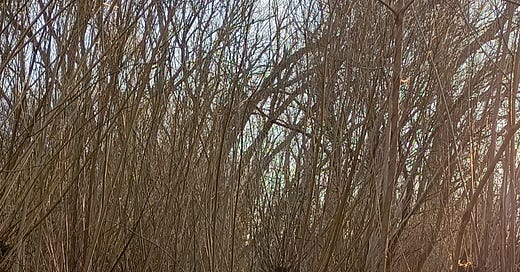
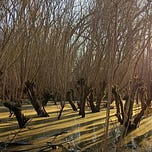


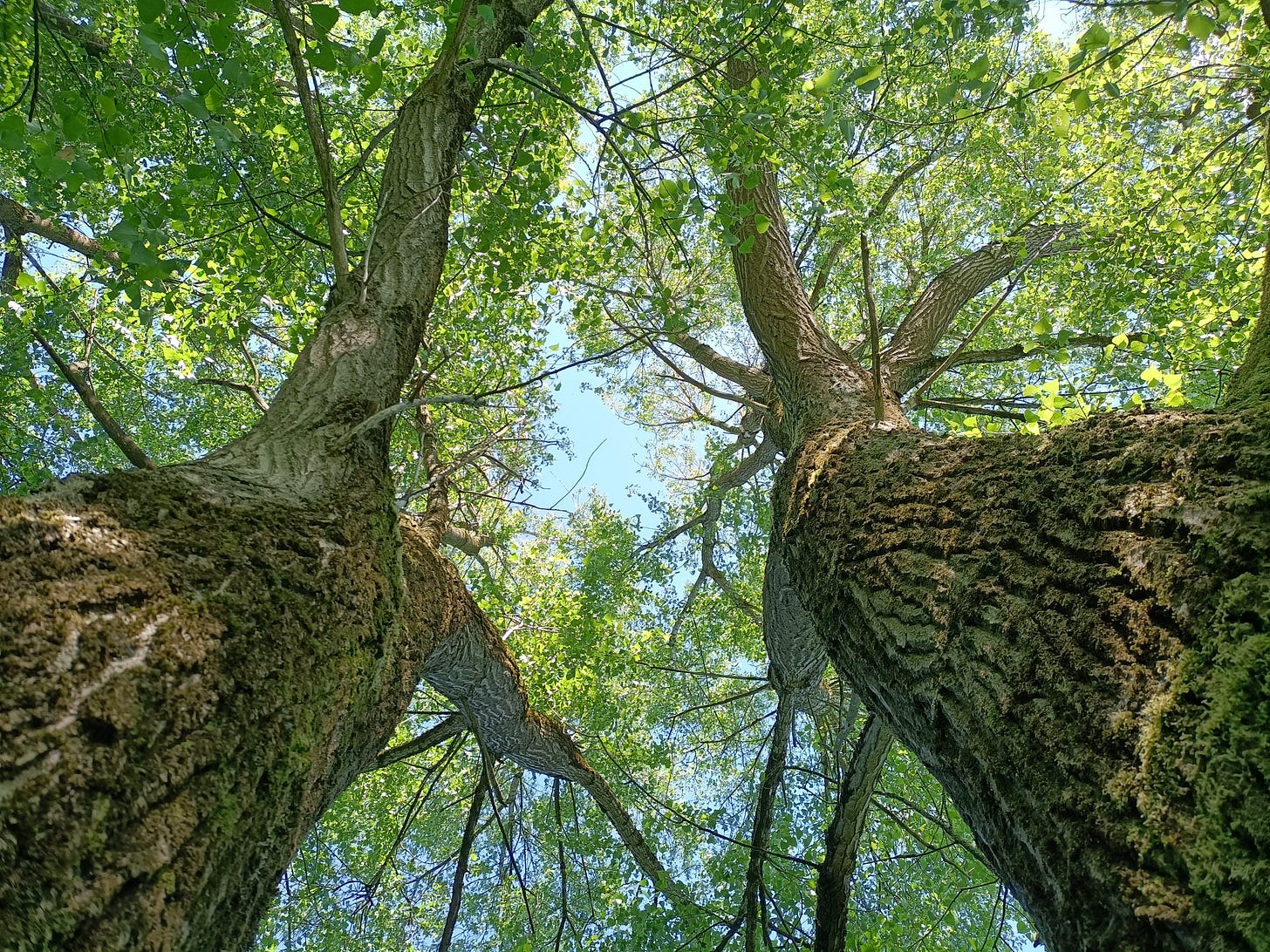
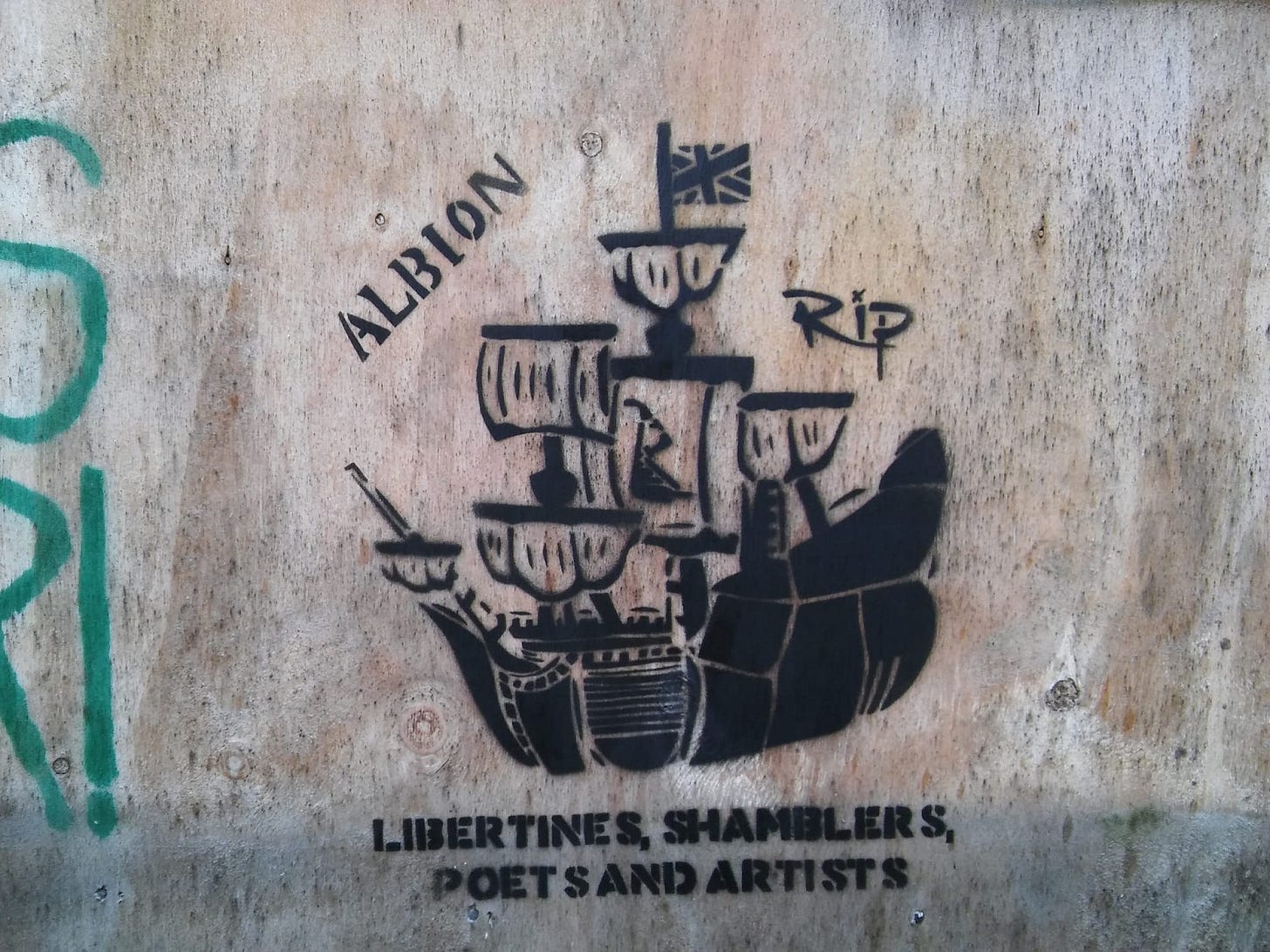

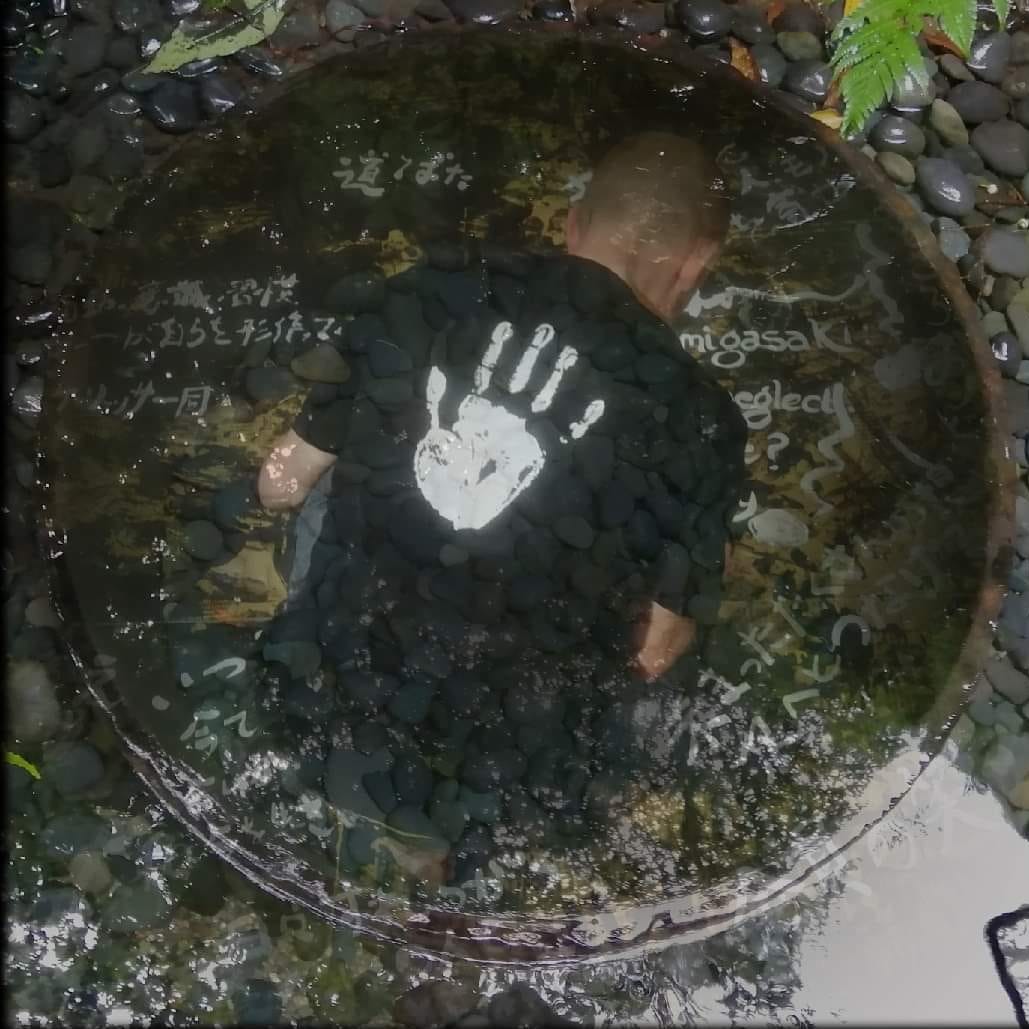








Share this post